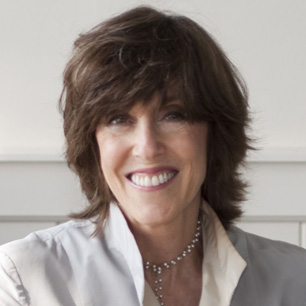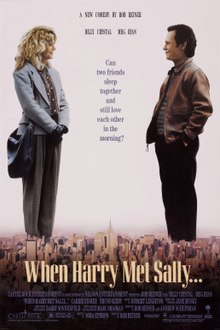 Most people know I have a freakish memory when it comes to certain events, significant and seemingly insignificant alike. But for the life of me I cannot remember the first time I saw When Harry Met Sally.
Most people know I have a freakish memory when it comes to certain events, significant and seemingly insignificant alike. But for the life of me I cannot remember the first time I saw When Harry Met Sally.I don't think it was in the theater; in fact, I think it was a few years after its release. How or why that happened, I'm not sure. But by the time the credits rolled, When Harry Met Sally shot up to the top of my all-time favorite movies list, and has been there ever since.
To say that Nora Ephron was an inspiration to my life as a writer would be an understatement. In truth, she was so much more -- she inspired me as a woman. Few people know, for instance, that she worked in the Kennedy administration. She also broke through the male dominated field of journalism (although in those days, just about every field was male dominated), eventually writing for Esquire. She was a part of and wrote about the women's movement as it unfolded, and left her mark on it not only in words, but deeds.
And she was funny.
In her films and essays and articles, Ephron so wonderfully captured not only the transformative powers of food, but its effect on love, and vice-versa. Despite having a rocky love life for the first part of her life, Ephron seemed to be the eternal optimist when it came to romance--or, at least, she imparted that in her characters while exposing all the wonderful, comical absurdities about relationships that I so love to capture in my own novels.
Some fellow authors and I have been sharing good and bad writing advice we've received over the years. We debated over one that says "Write what you know." Nora Ephron took that one to heart (namely, when she wrote Heartburn, a fictionalized tale of the end of her marriage to Carl Bernstein). Manhattan became just as much of a character in her films as Meg Ryan did. She loved being a writer. She loved books. She loved cooking. Her characters were often journalists or cookbook authors.
I followed suit when I wrote Faking It. As I've share many times here and in interviews, I didn't have much self-confidence when it came to fiction-writing. I was more comfortable with the personal essay. So I thought: What Would Nora Do? and proceeded to rely on the superficial details of my life for Andi's. Italian-American heritage. Long Islander. Writing professor (which worked out in more ways than one). What's more, there wouldn't have been a Faking It had it not been for When Harry Met Sally. Because what followed the "what if an inhibited woman meets an uninhibited guy" was "and what if they become friends?"
In Julie and Julia, there's a moment when Julie talks about the imaginary conversations she has with Julia Child as she cooks. That was all Nora, who often did the same thing--not just with Child, but other famous chefs of her time, some of whom she got to meet and interview during her journalism career.
She's not the only one. Many times I've envisioned the same thing. Nora and I have lunch (always lunch, for some reason, even though it's my least favorite meal, menu-wise) at some Manhattan bistro. (Or in the Hamptons. I heard she had lived there for awhile.) The conversation goes something like this:
Nora: I read Faking It.
Me: What did you think?
Nora: You know I wanted to sleep with Devin the moment I met him.
Me: Yeah. Everyone does.
Nora: I also think you probably ruined it for male escorts everywhere.
Me: I wouldn't know. I made all that up.
Nora: Neither would I. But it's fun to imagine it.
I would then ask her to explain the virtues of baking your own bread just to see the look on her face when she did.
At the end of lunch, when we parted ways, I imagined her saying this: "Have Meryl Streep play you in a movie sometime. You won't regret it."
I've imagined my novels getting the Nora Ephron treatment on the screen. Ok, so I never saw Tom Hanks as Devin (or Billy Crystal, for that matter) or Meg Ryan as Andi, and I can't help but think she'd re-set Why I Love Singlehood in New York City than Wilmington, NC. But I believe they'd be good. There are few others I'd trust to adapt my work.
And yet, I don't have to re-read my novels to know that they already have the Nora Ephron treatment. She's on almost every page, either in homage to one of her films (slight tangent, but "I'll have what she's having" was a line that Billy Crystal came up with), or her writing style and ethic. Nora Ephron was a colossal re-writer. Perhaps our ways of doing so differed (I seem to recall her saying that she used to re-write as she went along, which undoubtedly cost her a lot of paper, typewriter ink, and white-out in the days before word processing), but I knew we both wanted to make sure we got the right words.
Most importantly, if it wasn't for women like Nora Ephron, I wouldn't have been able to be a respected college professor, single woman, or published author.
I am sad that I'll never get to have lunch with Nora Ephron for real, and I don't know if she read any of my books. I hope/wish she had. But I take comfort in knowing that she has left something behind for all woman. A glass ceiling with holes in it, a legacy of good writing, a few good recipes, and the mother of all fake orgasms.
I'll miss you dearly, Nora.

